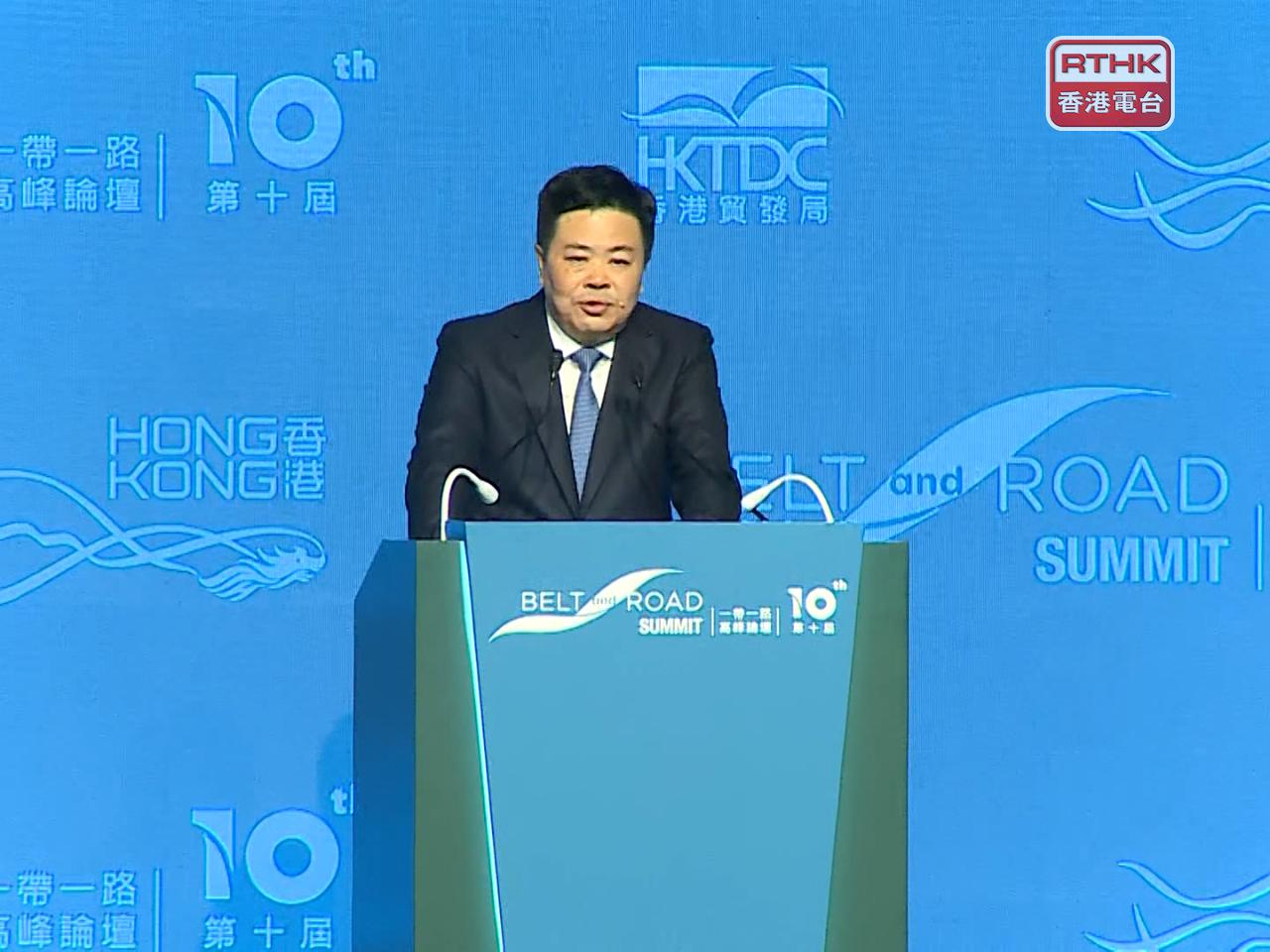Vice commerce minister Yan Dong on Wednesday said that Beijing is studying the feasibility of setting up a free trade zone between Hong Kong, Macau and the mainland, as part of measures to further boost the SAR's trade appeal and contribute to the Belt and Road Initiative (BRI).
The remark came as he delivered a keynote speech at the city's annual Belt and Road Summit at the Convention and Exhibition Centre.
Yan said China's trade with countries under the BRI initiative has achieved "fruitful" results, exceeding US$3.1 trillion last year to account for over half of the country's overall foreign trade.
He said China also signed various investment cooperation memorandums with over 50 Belt and Road countries to develop the digital and green economies, covering green infrastructure and clean energy projects to aid global low-carbon transition, while a wide range of "small and beautiful" projects also improved people's livelihoods.
Yan said Beijing fully backs the SAR in jointly contributing to the high-quality development of the Belt and Road, especially after the mainland and Hong Kong implemented the second amendment to the Closer Economic Partnership Arrangement (CEPA) in March.
"We'll further expand the opening up of the mainland to Hong Kong in areas such as finance, telecommunications, construction and tourism, align with international high-standard economic and trade rules, and study and promote the joint building of a free trade zone between the mainland, Hong Kong and Macau," he told participants.
"We'll also support Hong Kong in signing more free trade and investment agreements with foreign countries, and joining RCEP as soon as possible to further expand its foreign economic and trade network," he added.
RCEP is a mega trade deal among 15 Asia-Pacific economies, creating the world's largest trading bloc covering China, Japan, South Korea and several Asean countries.
Yan's remarks also came as China pushes for a formal signing of a free trade agreement upgrade with Asean by the end of the year to construct new land and sea trade corridors.
Separately, Xiao Weiming, deputy secretary general of the National Development and Reform Commission, the country's economic planner, said at the same event that China's economy will continue to grow steadily in the long term despite external changes, which will inject growth momentum for the SAR as well.
"Hong Kong serves as a key 'traffic' hub for foreign capital to enter the mainland, and for mainland enterprises to go global," he said.
"We'll support enterprises from Hong Kong and the mainland to go to the Belt and Road partner countries, such as those in Southeast Asia, the Middle East, and Central Asia to seek business opportunities and common development, proactively connecting global funds with the high-quality [Belt and Road] projects," he added.
Also speaking at the event was Li Zhen, vice chairman of the State-owned Assets Supervision and Administration Commission of the State Council, who noted that state-owned enterprises have been closely in touch with Hong Kong businesses, providing financial support for projects related to the BRI.
Beijing-backed companies, he added, are also willing to join hands with all sectors of Hong Kong to strengthen domestic and global connectivity, while making good use of the SAR's professional services and its role as a new international mediation centre to assist with the implementation of those BRI projects.







